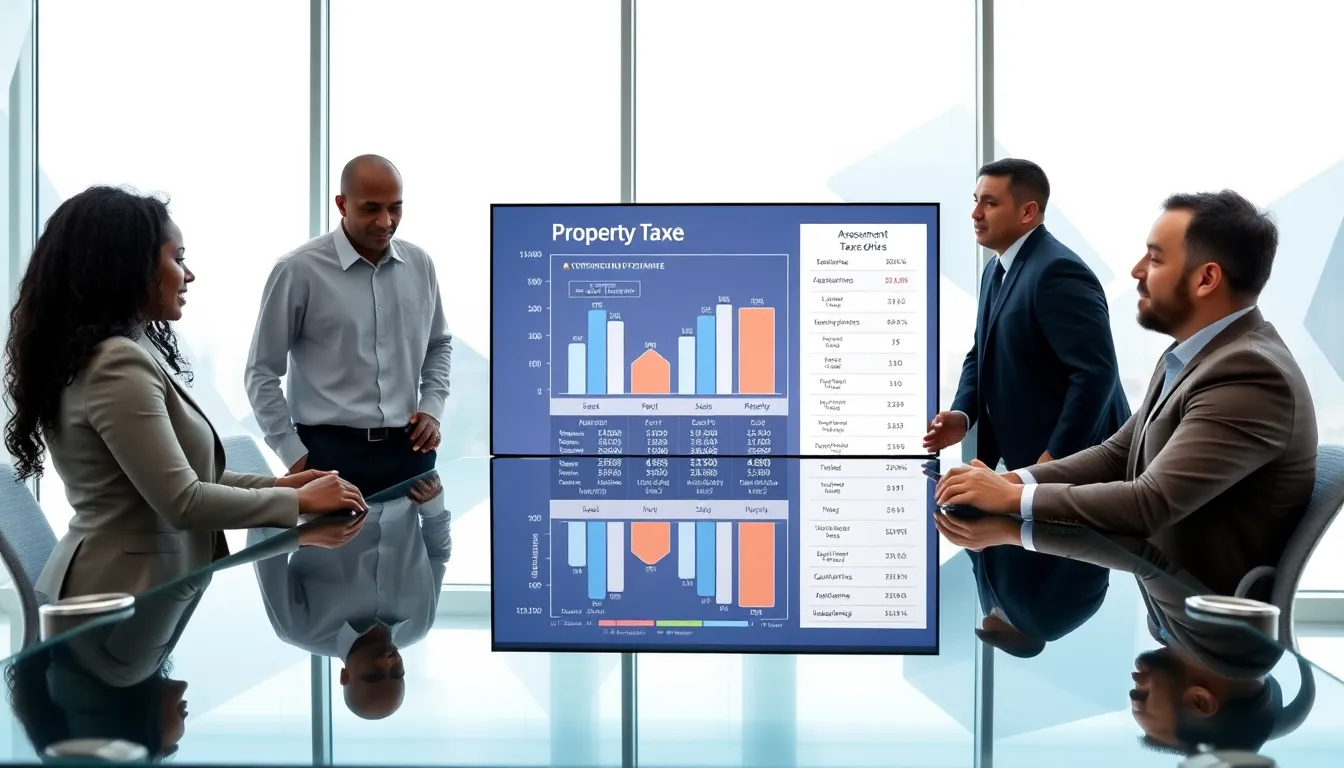Is your local property tax bill starting to resemble your grocery bill? You’re not alone. Property taxes are notorious for their upward climb, leaving many residents scratching their heads wondering, “Why so high?” In this insightful dive, we’ll peel back the layers of this puzzling issue, using a blend of humor and serious analysis. So, grab a cup of coffee and let’s roll up those sleeves: it’s time to talk property taxes.
Table of Contents
ToggleUnderstanding Property Taxes

Property taxes, in their simplest form, are taxes imposed on real estate properties. Local governments rely on these taxes to fund essential services like schools, roads, and emergency services. But how exactly is the amount decided? Typically, it involves assessing the property’s value, then applying a tax rate to that value.
For example, if a home is valued at $300,000 and the local tax rate is 1.2%, homeowners would owe about $3,600 in property taxes annually. It’s a straightforward calculation, yet not so straightforward when the rates start soaring.
Factors Influencing Property Tax Rates
A multitude of factors contributes to the dizzying heights of property tax rates. One of the primary influencers is the local economy. When communities flourish and attract new businesses, property values tend to rise, resulting in higher tax bills. Conversely, down economies can affect tax revenue negatively, leading local governments to increase rates on property owners to cover shortfalls.
Another significant element involves the property market itself. Fluctuations in housing demand and supply significantly affect assessed values. Higher demand usually leads to increased property values, which translates into more significant taxes. That’s a lovely way to say, if your home is worth more, get ready to cough up more cash.
Local Government Funding and Services
Local governments depend heavily on property taxes for their budgets. For most municipalities, property taxes account for a large percentage of total revenue. These funds help pay for vital public services, think schools, hospitals, and police. When these services expand or new ones are introduced, tax rates often have to follow suit.
In a sense, property taxes are a reflection of local priorities. If a community values strong educational programs, improved infrastructure, and public safety, they may have to accept higher taxes to maintain those standards. But it begs the question: where’s the line between necessary funding and a tax burden that feels excessive?
Impact of Property Market Dynamics
The dynamics of the property market significantly influence property taxes. In booming areas, a surge in housing demand can drive values, and taxes, sky-high. Imagine a neighborhood once dotted with shabby buildings suddenly transformed into luxury condos. Property values spike, prompting local authorities to reassess worth and so crank up tax rates.
Conversely, in regions where property values are in free fall, municipalities may struggle to maintain their revenue. Unfortunately, this can lead to strategic tax rate hikes as local governments scramble to fill budget gaps. Not the best scenario, right?
It’s a cyclical phenomenon that leaves residents feeling the pinch on both ends.
State Legislation and Tax Policies
State policies can significantly affect property tax rates, varying drastically from one state to another. Some states impose stringent regulations on how often properties can be reassessed or how much rates can increase annually. In contrast, others have little oversight, leading to unpredictable hikes in tax assessments.
For example, states with less stringent regulations may see taxes rise alongside market valuations more rapidly and to a greater extent, while those with strict limits might experience slower growth. It creates a hodgepodge of experiences for property owners nationwide.
Challenges and Criticisms of High Property Taxes
High property taxes often draw criticism from homeowners and renters alike. Many argue that the tax burdens become unsustainable, particularly for those on fixed incomes or in economically stagnant areas. It begs the question: when do taxes cross the line from necessary funding to overwhelming burden?
Some residents feel high property taxes disproportionately affect lower-income households, making it difficult to afford homes or even stay in neighborhoods they’ve lived in for generations. And let’s not forget about the classic dilemma: if property taxes are high, does it correlate with better local services? Many argue that efficiency in local government spending plays a crucial role in ensuring that tax dollars are put to good use, yet inefficiencies remain a common complaint.




